Death on the Urban Homestead
By Anne-Marie Miller
Editor’s Note: The Urban Farm U community is made up of conscious eaters, including vegans, omnivores, and everything in between. At Urban Farm U, we have not taken sides on the ethics of raising animals for meat, but hope to provide balanced information from both perspectives so that urban farmers can make that decision for themselves. That being said, we’d like to note that the humane treatment of animals IS very important to us. We hope that, if you do consume animals and animal products, you consider how that animal might have been treated before it reached your plate.
It is with a heavy heart that I write this article. I almost wish I could paint a pretty picture of urban farming success, a beautiful picture of abundant gardens, rabbits and chickens running around under foot, but I want to be real for you. I want to paint the picture as it really is.
When I began raising rabbits, I wanted them to have the best life possible. That meant letting them feel the ground under their feet, the sunshine on their shoulders. Giving them the freedom to dig, jump and have a life that was as close to a wild rabbit that I could provide, while still keeping them safe from harm. This way of life was so important to me.
I raise a heritage breed of rabbit; Champagne D’ Argent. They are named after the province in France that they originated from. They start out black as babies and turn a beautiful elegant silver as they age.
The rabbit pellets of poop that they produce has been a wonderful source of fertilizer for my raised bed gardens!
I have become very attached to my breeding pairs. I have Buddy, who is everyone’s friend. He mates up with Adeline, who was bottle raised as a baby, but has turned out to be an exceptional mother.
The other breeding pair I have is Christopher, who is so clever that he lets himself out of his cage quite often. He is paired up with Dolly, who is so beautiful, but is very scared of human contact. We are working with her daughter, named Mystic River. Every day we take Mystic out of her pen and give her treats and love. It is so much easier to take care of an animal that is not afraid of you!
You can clearly see how my heart has been captured by these rabbits. Everything was going well with them. I had big healthy litters, which I was able to sell to other urban farmers, to help get them started with breeding pairs.
However, as the hot humid weather set in, my story took a sad turn. The villain entered silently stage left…. his name was coccidiosis!
Coccidiosis is a parasite that multiplies under warm wet conditions. It can be introduced to your homestead by something as innocent as wild birds. Once it takes hold in your rabbit’s’ intestines it is game over! Before you know the name of your enemy he has taken out the young. If you are lucky and smart he will not claim the lives of every animal on your homestead. I know that sounds alarming and I have to say, truthfully, that it is. In the last week, I have had to end the lives of the young rabbits in my care to cut short their suffering. This was the single hardest thing I have done as an urban farmer. Tears streamed down my cheeks as I ended the lives of these suffering little ones.
However, my urban farming community came in around me. I am so thankful to the support of my urban farming team! Following is how I fought this insidious enemy:
There are many in-depth articles on the internet listing the symptoms, testing and treatment options for Coccidia.
Short term I gave all the animals (chickens and rabbits) on my homestead Corid (9.6% liquid solution) at 1 tbsp per gallon of water for 5 days. Then, following the life cycle of my enemy, I waited 10 days before administering the same dose for 5 more days. While all my adult rabbits and chickens are doing well, out of 14 kits, I have 2 small survivors left. I also supported these young kits with colloidal silver at half a dropper twice per day and supported their immune systems with On Guard essential oil, from doterra oils on their ears twice per day. My 2 little champions are doing beautifully. I wish I could have saved more. Had I been aware of the enemy early on, I think they could have had a fighting chance.
Tragically, I am not alone in my fight. I have heard from farmers from Florida, South Texas, Oklahoma, Georgia, Alabama and Mississippi that have struggled with this parasite.
How about Arizona, you might be asking? Well, the dry desert temps might be enough to discourage this parasite from multiplying in the soil. However, the sad truth is that all rabbits carry around this parasite in their system. It is only when they are stressed, as from the heat, that it can overload their immune defenses and cause sickness and death. The young are especially vulnerable.
After discussing this condition with many of my online farmer friends, these are the things I will change to prevent this enemy from taking hold in the future.
- Have a shelf on all pens that the rabbits can use to get out of the damp soil in wet times.
- Change to bottle/nipple water systems which will keep water clean at all times.
- Change to feeding tubes that will prevent the young baby rabbits from jumping into and pooping in feed dishes.
- Make ground pens easier to move around homestead to fresh ground. (rabbit tractors?)
- Breed back to back from fall to early spring (ending breeding by the 1st of March in Dallas, Texas so that babies are growing out before the stress of HOT weather).
- Give all animals pumpkin seeds collected from Halloween pumpkins in October as a natural preventative to parasites and intestinal worms.
- Add grapefruit seed extract at 10 drops per gallon of water for 2 weeks twice a year as a natural preventive of parasites.
- Give all rabbits willow twigs and leaves to chew on in the Spring as a parasite preventative.
- Putting apple cider vinegar in water at 1 TBSP per gallon of water for 3 months on 3 months off cycles throughout the year.
While it is tempting to administer a preventative dose of medication in early spring, my vet cautioned me that creating a stronger more medicine resistant parasite is often the result of such a treatment plan.
I am hopeful that I can overcome this enemy. It does beg to ask the question: Can a small urban homestead become overused? Does the soil need time to rest and restore between animal rotations? What are some ways we can restore the areas of a homestead without closing it off as unusable for a period of time?
I would love to have you, as my urban farming community, weigh in on the answers to these questions. Again, I wish with all my heart that I could paint you a picture of rabbits and chickens frolicking amongst one another in health and happiness on the homestead. That is just not my reality at the present time. I am also going to ask you all to please come from a place of compassion when leaving your comments. I know there are all sorts of urban homesteads, some which agree with animal raising and some that don’t. I know for sure this homestead has had its share of heartache this spring/summer. So much so that we have considered throwing in the towel, so to speak. In fact, if you have a word of encouragement, this would be the time to use it. A heartfelt word of thanks, ahead of time, for your compassionate responses.
In the end, we are all in this movement of urban farming together. We are learning from one another’s mistakes and victories. We are determined to provide healthy, humanely raised food for our families and to teach a younger generation where their food comes from!
From our homestead to yours, wishing you a happy healthy summer. Blessings on you and yours, Dash.
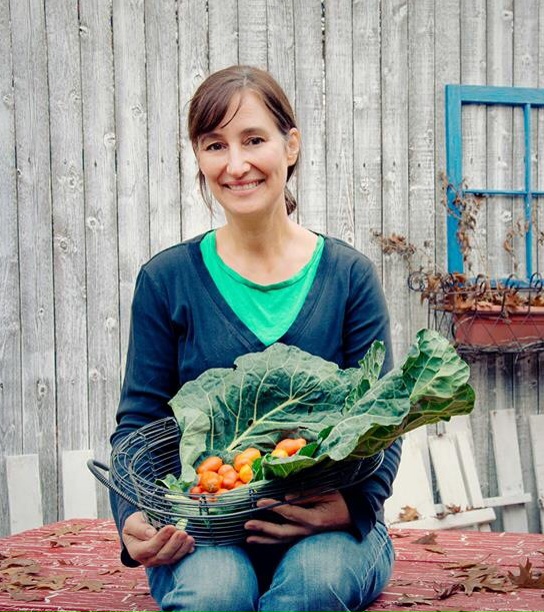 Anne-Marie or Dash (for the hyphen in her name) is an urban farmer in Dallas, Texas. She raises chickens and rabbits on less than ¼ of an acre. Plus, she has turned her front yard into a large stand-out-in-the neighborhood vegetable garden. In addition to the farming she does on her homestead, she helped create a community garden literally from grassy field to thriving garden. What stands out about her little urban homestead is her determined out of the box approach to overcoming obstacles. You can follow her adventures on her little urban homestead by visiting her blog: BloomWhereYourPlanted.com.
Anne-Marie or Dash (for the hyphen in her name) is an urban farmer in Dallas, Texas. She raises chickens and rabbits on less than ¼ of an acre. Plus, she has turned her front yard into a large stand-out-in-the neighborhood vegetable garden. In addition to the farming she does on her homestead, she helped create a community garden literally from grassy field to thriving garden. What stands out about her little urban homestead is her determined out of the box approach to overcoming obstacles. You can follow her adventures on her little urban homestead by visiting her blog: BloomWhereYourPlanted.com.


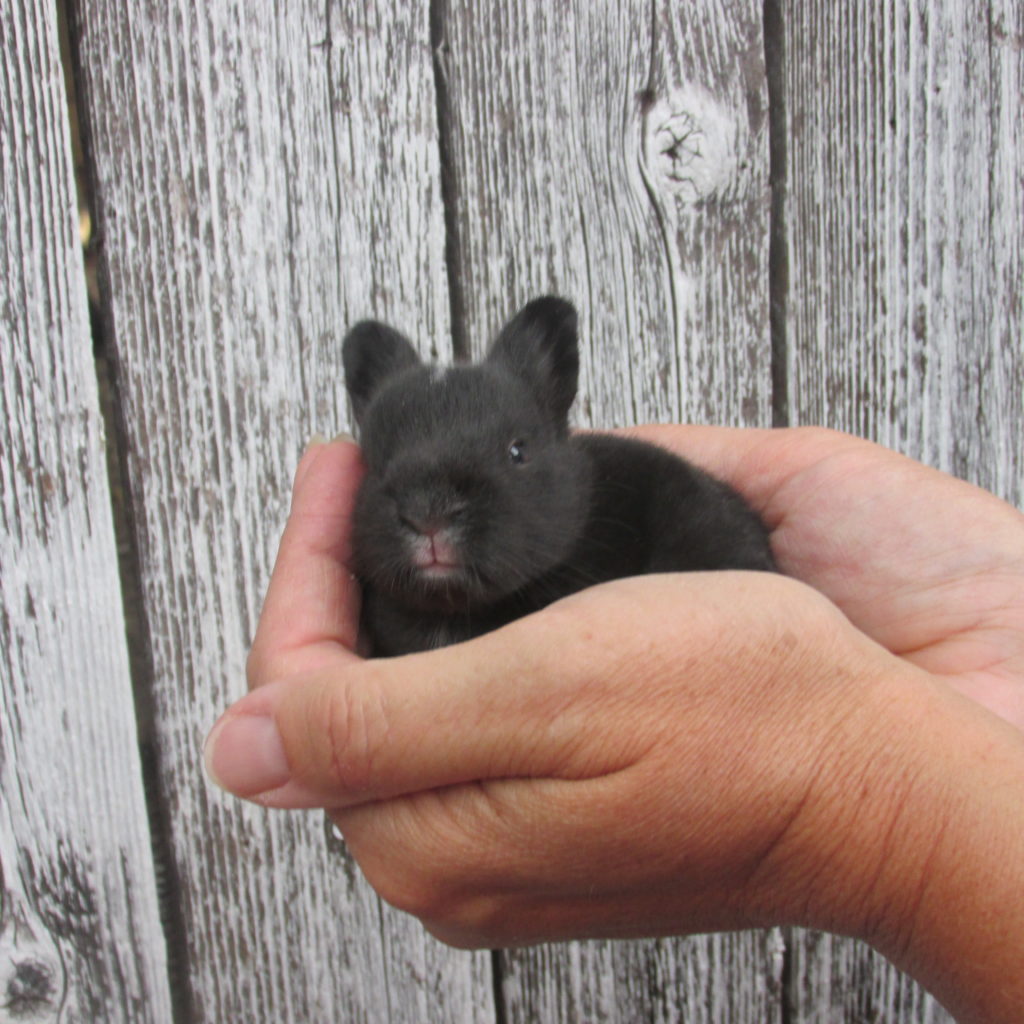
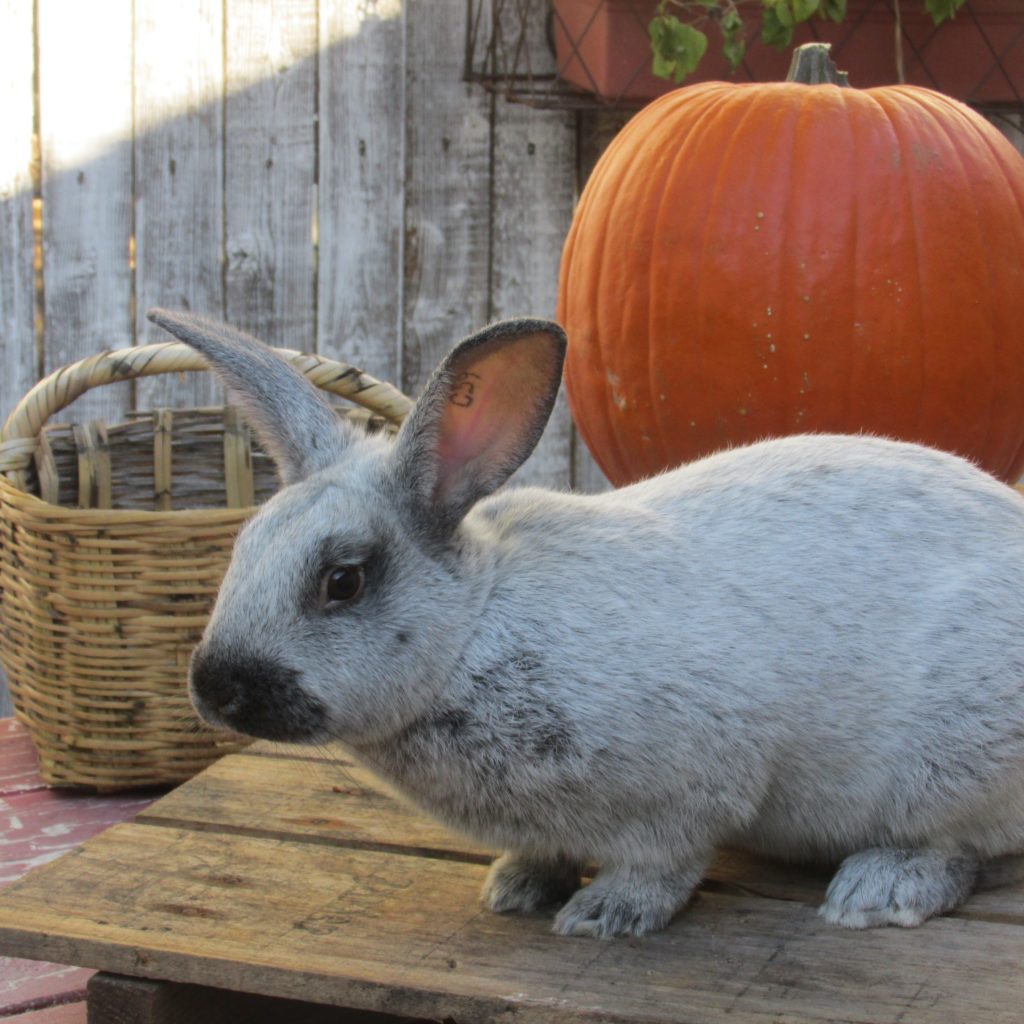
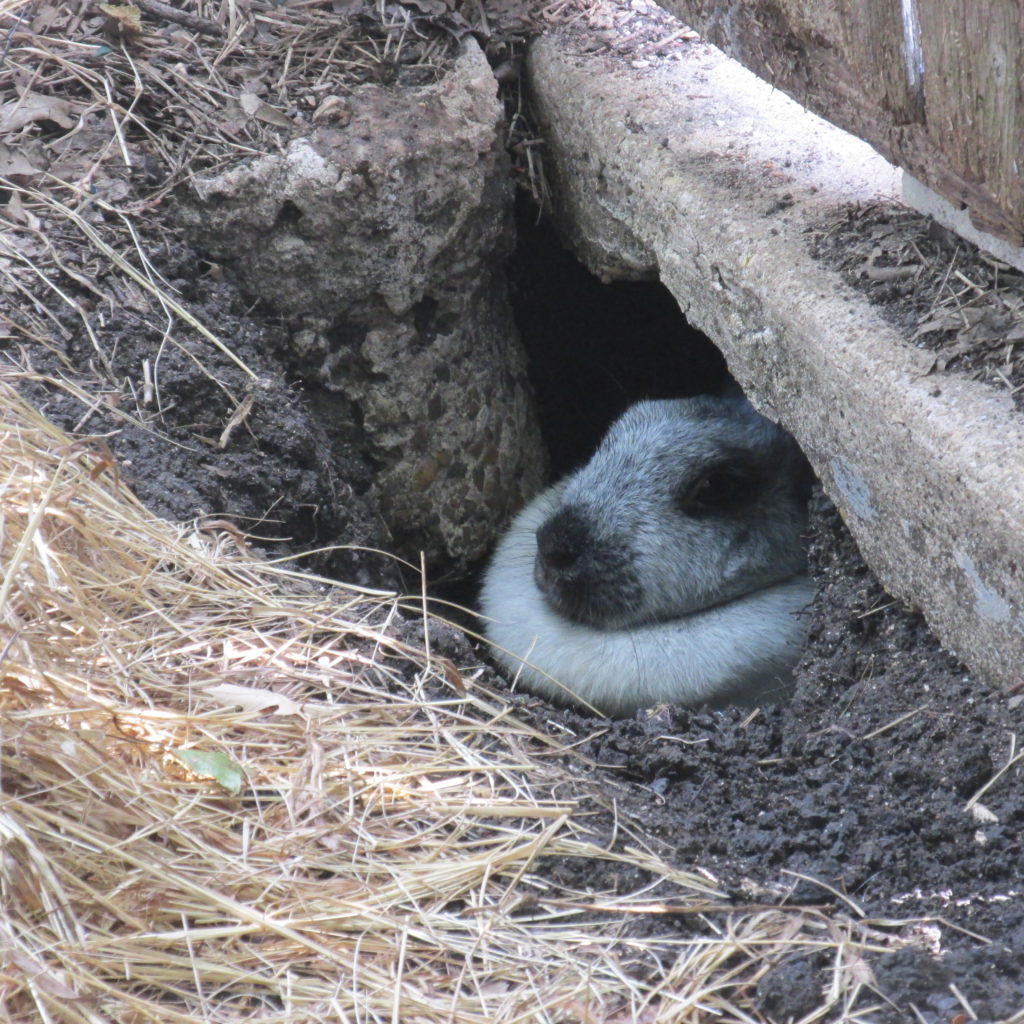
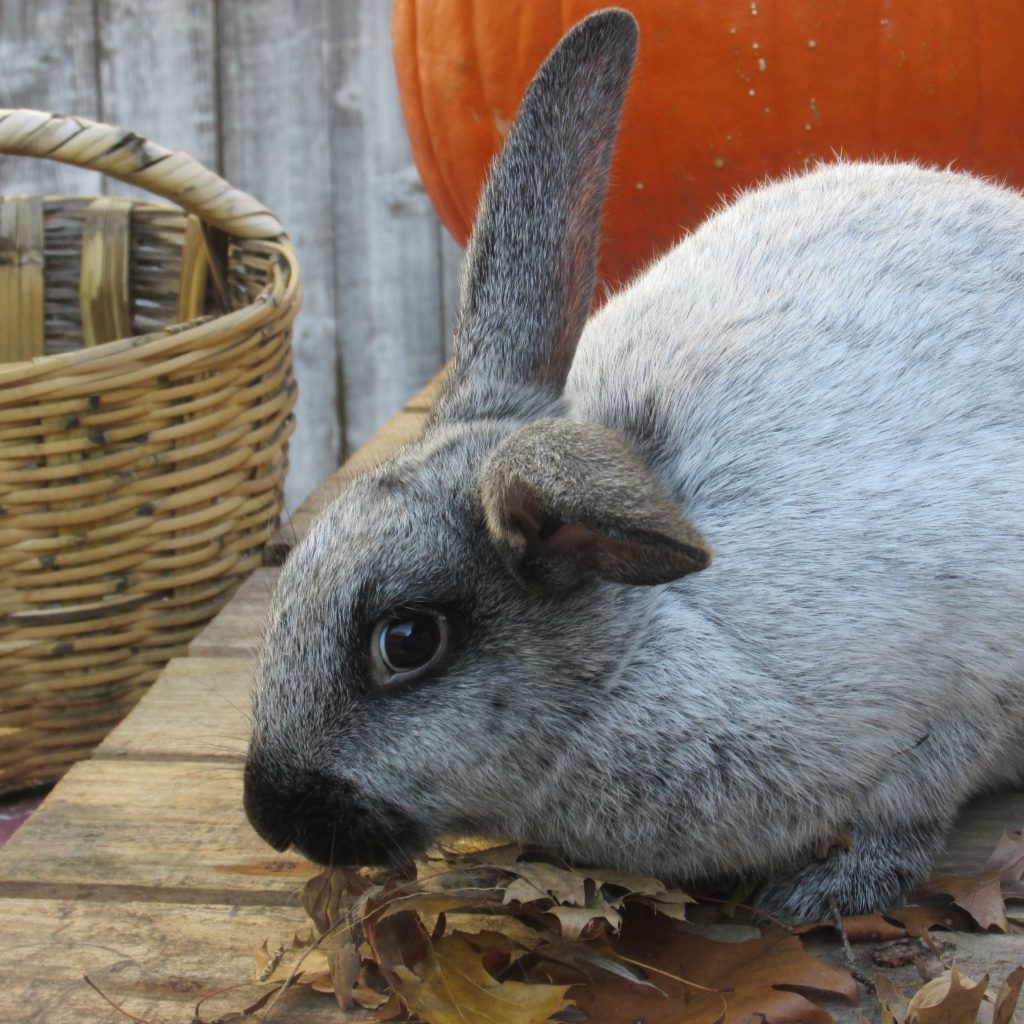
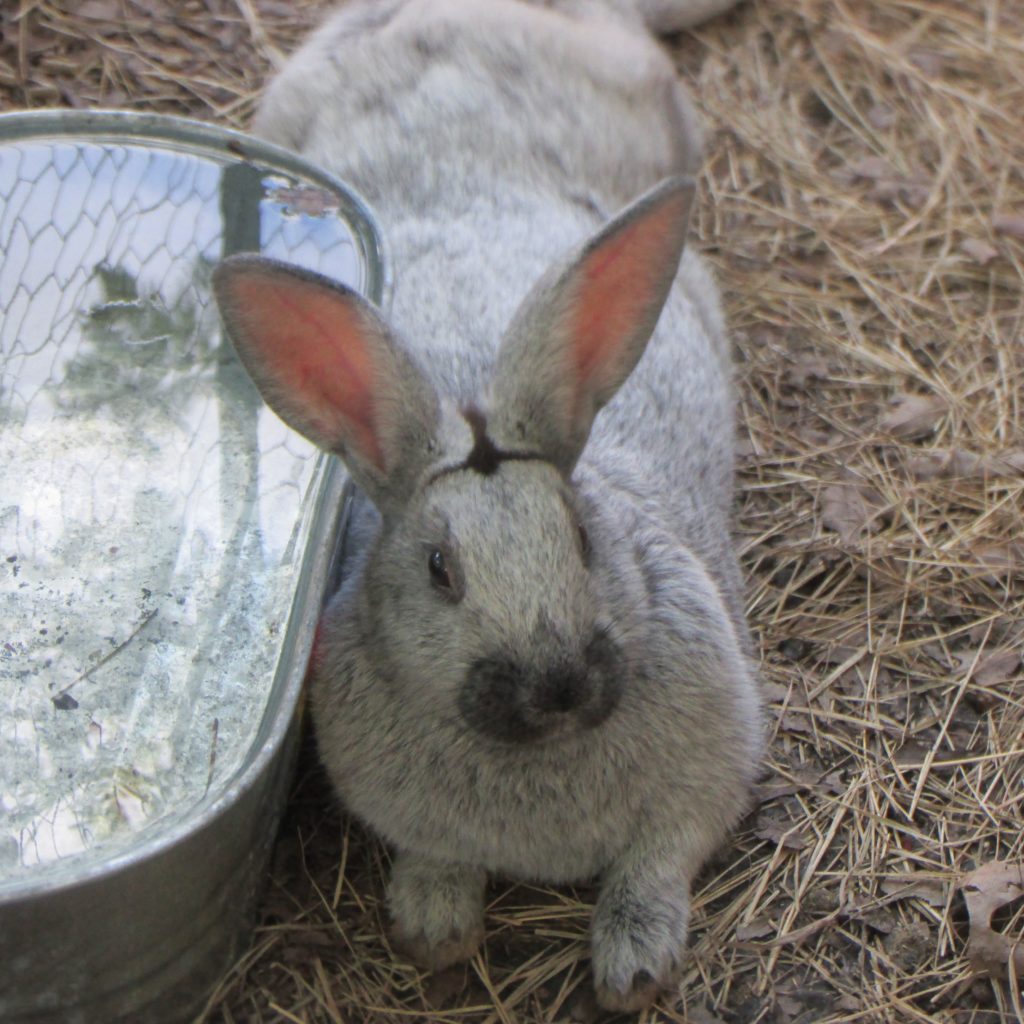





I am so sorry this happened to you. We had a similar experience a few years ago. There was a surge in the population of ground squirrels and they were carrying a flea we had never encountered before, a sticktight flea. It infested our little homestead. We found them in varying degrees on the goats, cats, dog, and the worst were on our chickens! We didn’t even realize chickens could get fleas! Out of our 26 chickens only 4 survived. On top of that for 2 years the squirrels devoured everything we grew. No garden and no eggs! We almost gave up. We tried everything. It leads me to wonder too about overusing a small plot of land. Maybe we need to figure out how to give it rest. But don’t give up! Our garden is back and our chickens are doing well once again. Ebb and flow…
Danette, Oh good grief, I didn’t even know there was such a thing! Thanks for the heads up. When it comes to squirrels I am glad I have so many boys that really get serious about defending the homestead. It is incredible to see them come out of a solid deep sleep when they here a me shout POSSUM IN THE COOP! I have a funny story about squirrels. I should write it in an article some time. I sent my son and his cousin to the community garden to defend our melons with their BB guns. Someone called the police! I kid you not, 4 patrol cars come screeching onto to grass surrounding the garden. Loud speakers tell the boys to drop their weapons! Those 2 little boys stepped out from behind the corn and about peed their pants! I really should write it up for you guys. It is a good one.
Again, thank you for the encouragement! Dash
Oh my goodness! That’s hilarious! Not for the boys I’m sure. My young son was eventually who protected my garden as well. Beneficial nematodes were one of the solutions to our flea problem as well. You might give them a try. In case it’s helpful to anyone else we used lots of DE on the chickens and in the coop and run, washed them with a weak solution of dawn dish soap 😳, and sprayed them with straight ACV, and used Vaseline to smother the fleas imbedded on their combs and faces. We repeated this every 10-14 days to break the cycle.
Dear Anne-Marie,
I am certain you will get many replies, but I wanted to make sure I was one of them. I grew up in the Midwest and have had many different types of pets, several being rabbits. There is something about the rabbit’s appearance, from it’s tiny wiggly nose to it’s fluffy cotton tail, that warms the heart of all of us. I realize these rabbits were part of your urban farm and they were farm animals, but I can feel, through your writing, that you loved them, respected them, it was obvious you cared for them, and that you wanted the best lives for them, while they were on your farm. You can’t beat yourself up for not knowing everything. You did the best you could for them, with what you knew at the time. Now you have learned how to try to keep this from happening again, you have taken measures to try to ensure it doesn’t happen again, you are educating others so it they can be aware of it and protect their own rabbits, and you are even looking for strategies above and beyond what you already know to make sure you are doing everything possible for your rabbits. I’m really sorry you went through this. It sounded traumatic for you. 🙁 Don’t give up on what you want from your urban farm, due to this incident. Look at it as a learning experience for yourself and one that you have been able to educate others to help prevent this from happening to anyone else.
Best wishes and happy farming to you!
Caroline Beckering
Caroline, Thank you for your encouraging response. You are right, I am glad that I can help others through this.
My sweet engineering minded son (18 yrs old) isn’t very involved with the homestead normally. He is not my animal guy. It really touched my heart that he took the time to redesign my on ground rabbit pens. I gave him a list of all the changes I wanted to make. I think they turned out well. He could tell I was struggling. It really encouraged me the way he spent time to help me. So there is light in these things if we look for it! Thanks again for your comment. It means a lot to me!
Dash
Thanks for sharing such a difficult experience wit us. There is so much to learn for each kind of livestock we keep, I can understand completely how the relative risks of yet another hazard could slip by you until it exploded right in front of you. Your backyard barnyard looks pretty completely committed to livestock. Do you think it is possible that some diseases might be controlled by rotating a section committed to growing herbs or other crops that might have a cleansing effect on the soil, or build up beneficial micro-organisms that might help keep some disease and parasites in check? Would love to know if you find anything out about that!
Thank you Sandy, I will definitely be researching how to let my property rest. I have thought about beneficial nematodes or something similar. I can’t really grow anything because of the shade, which is a saving grace in the Summer for the animals. So good to have lots of input and minds working on suggestions.
I have been utilizing some of my neighbors yards, which is an interesting way to go. Many of them are behind what I do and are willing to let my animals come spend time eating their grass. It seems to be a win win for everyone. I have noticed new life springing up in my backyard since the chickens have been at a neighbors. So maybe this is a way to let a homestead rest? We will have to wait and see. Thanks again for taking the time to comment.
Dash
I really hate to hear about your tragedy. But please do not give up. You are now better equipped, with the right knowledge to prevent this and raise even healthier animals. One thing I have learned, when you deal with animals or gardens, losses are inevitable. Passing on your experiences to the rest of us helps everyone become better equipped to handle problems when they arrive. I planted my first Garden this year. Had everything transplanted and all the seeds in. Then the rain hit. We live in central Florida just north of Ocala. It rained everyday for almost six weeks. It was cloudy all day. Humidity was never lower than 85%. The heat index was in the 104 to 105 degree range. It is still raining almost every day still. Super hot and super humid. I tried to transfer all the young stuff to raised beds I built in a hurry. But the water just wicked up from the bottom of the beds. My cucumbers and beans loved it. My squash and zucchini would start, look good and then waste away. Covering the beds did no good because of the wicking problem. I watched everything get waterlogged and waste away. We set a new record for rain in the month of May and June here. And may for this month if something doesn’t change soon. I pulled everything and prepared the beds and garden for replanting in a week. Then the coons found a way to my chickens. Lost four the first week. Finally cured that problem and am ready to move on. The people I watch and listen to prepared me for the looses that would eventually come. But it still is hard to take. But I am a stubborn old man that does not like to give up. So I am preparing for round two. I am better equipped and a little more knowledgeable now. It would be a shame to quit now. Hang in there and move ahead with your new knowledge and the help of your friends and this community. I am trying to learn about wildcrafting and medicinal plants now. I just hate that I wasted so much time to get started. May God bless you and your homestead.
Dalton, Thank you so much for your encouragement. I was feeling a bit defeated when everything happened, but I am a bit on the stubborn side, so I don’t give up easily. Sounds like you don’t give up easy either! Good for you that you didn’t let your rough start discourage you! Well I won’t either. We can both be stubborn together! Thank you again. Dash
Thank you for sharing your experience and ways of preventing it from happening again. I am going to put your knowledge to use with my own little farm. I worry about parasites but am reluctant to use any commercial produce on my bunnies and chicks. Everyone is healthy and happy at this time but I am well aware of the fact that once you have a problem it can be devestating.
Donna